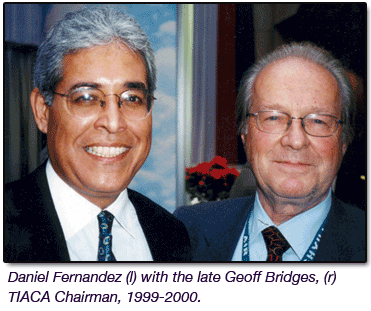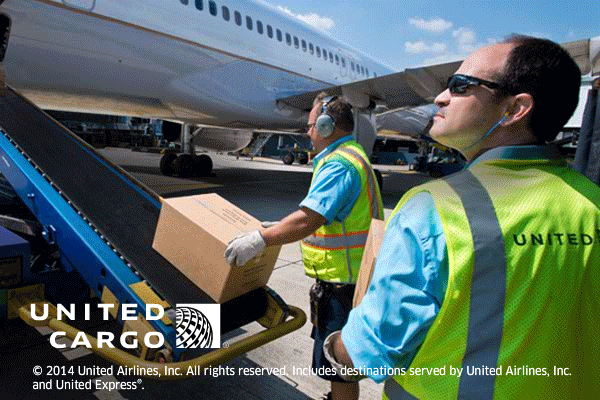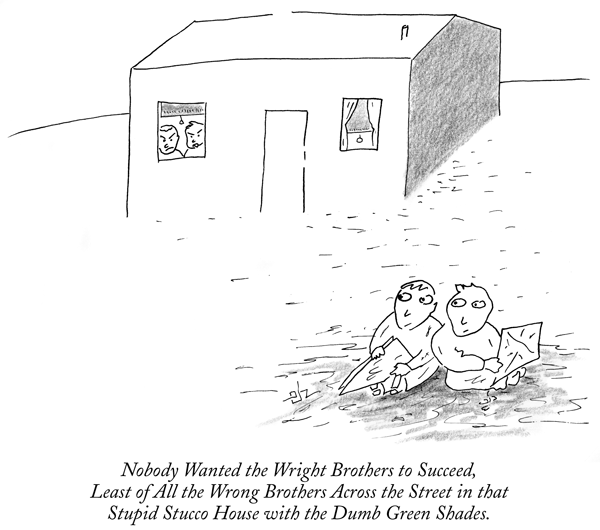| 
Now that the lights
were out, the bags were packed, and everyone was making their way home
from the 27th TIACA ACF in Seoul, there is one takeaway for the cargo
community to consider, and it involves the bleak winter ahead for the
venerable air cargo organization.
Our opinion is that ACF Seoul did not fill
the bill.
In 2014, there are still too many trade
shows, and that fact no doubt accounted for the less than stellar turnout
in Seoul.
This beloved industry needs to rally around
TIACA and support it.
Available options are slim indeed.
The slew of self-interested, publication-driven
events should be considered at arm’s length.
When you shake things out, in terms of air
cargo event options, there is IATA World Cargo Symposium (WCS), at which
the airlines are mandated to show up, and some other greater and lesser
trade events.
There is CNS, the American show recently
taken over in a large way by IATA, FIATA, Air Cargo Americas, and the
always interesting and huge Transport Logistik in Munich, where air cargo
has gained some traction over the past couple of years.
Then there is a growing list of specialty
shows like the Berlin Flower & Veggie Show or the Boston Cold Chain
event and similar events, gaining strength as places for air cargo to
go and find business.
“It
Was You, Fredo”
TIACA's current leadership can only point the
finger at itself for apparently having severely damaged the main revenue
stream of the organization— the ACF—and it does not appear
that there is a viable plan coming out of Seoul to replace it.
What Issa
Said
“Sadly, TIACA’s leadership during
the past few years has continued the focus on their own narrow interests
rather than the interests of the membership as a whole,” said ultimate
insider Issa Baluch, when he quit the TIACA board in 2013.
“The assets of the many, earned over
many years, are now appropriated to fund the agenda of the few,”
Issa Baluch lamented.
The alarm was sounded—FlyingTypers
alone reported it—but did anybody before this week actually consider
what was said?
The
New Deal?
FlyingTypers has learned
from a source that a plan was hatched and discussed “a few years
ago, that might dramatically change TIACA altogether.”
Suspend disbelief, and read on.
“The plan would axe the ACF (too messy)
as TIACA’s main revenue source and raise membership dues so that
only a small, elite group of companies sustain TIACA.
“Under the proposed plan ACF would
be contracted out or possibly eliminated entirely,” the source said.
“The group controlling TIACA would
be small, maybe 20 or 30 companies paying $100K or so each for the position.
“An underperforming ACF in Seoul was
factored as a foregone conclusion,” the source added.
It's telling that 50 percent of the board,
including the chairman's company, didn't even have a token presence on
the exhibition floor.
“TIACA, in its current state, is finished,
so unless new leadership arrives soon and realizes what the plan is, and
takes TIACA back to its original mission, the outcome is clear,”
the source concluded.
 We
spoke to Issa Baluch today post-ACF 2014 and he had this say: We
spoke to Issa Baluch today post-ACF 2014 and he had this say:
 My
memory flashes back to the previous ACFs and how each one broke records. My
memory flashes back to the previous ACFs and how each one broke records.
This 2014 edition takes us to the old
warning . . . do not meddle with something that is
functioning well.
The result this year has an engineering
connotation but dwells as well on organization.
It is OK to tweak, every organization
needs to adapt, but to wholesale overhaul has proven to be risky.
TIACA has not kept sight of what is
most important to it, versus what is important to some individuals
in the organization.
This is a very crucial question that
needed honesty in tackling.
I remain steadfast in my views that
the way TIACA has moved forward with changes has invited a disturbance
to a fine organization, and now it has detracted in the offering,
leaving members  concerned. concerned.
I can only hope the organization gets
back on track, but this will take some serious soul searching .
. . |
Chairman
Elect Jumps Ship
As TIACA Seoul week wrapped, FT
learned that the TIACA board is getting smaller: reportedly two board
members, including the next chairman, are quitting.
Talking about members gone missing, what
happened to WCA guarantee that would bring at the very least 200 new forwarder
members?
Shot Through
The Foot
 We
think in firing Daniel Fernandez, who was rather brilliant at driving
sales and organizing ACF, TIACA shot themselves through the foot. We
think in firing Daniel Fernandez, who was rather brilliant at driving
sales and organizing ACF, TIACA shot themselves through the foot.
FlyingTypers believes
that TIACA's original mission—to give a voice to all parts of the
industry—is still a sound objective.
The ACF was a way to fund that noble mission,
which harkens back to the very beginnings of modern air cargo, all the
way to a time when our industry had no voice and no strong association
to look out and stand up for air cargo interests.
Despite a lot of self-serving bally-hoo,
that situation remains more or less the same in 2014.
Some Ideas
The truth is, TIACA's current board "fixed"
something that wasn't broken. This has brought the organization to a crossroad.
Is TIACA going to be a small lobby group of a few large companies, or
the broad-based membership association that was built by dedicated industry
leaders over the decades? Those who have a stake in TIACA need to wake
up and make their voices heard.
Can
Yesterday Be Today?
I knew John Emery Jr., who served several terms
as IACA Chairman.
John helped build the organization that
TIACA became by inspiring people like Bob Arendal of Cargolux and Bill
Spohrer of Challenge Air, showing them that it was worthwhile to bring
the first TIACA ACF to Luxembourg. It was there that delegates met in
a small, bright hall in the daytime and repaired up to a castle on a hill
to drink wine and eat Raclette from a roaring fireplace all night long,
as IACA became TIACA in 1992.
In 1996 Ram Menen and His Highness Sheikh
Ahmed bin Saeed Al Maktoum of Emirates brought TIACA to Dubai, where the
organization hit the big time and filled its coffers with lots of money,
and was sent off on a ride that continued through the ACF in Atlanta two
years ago.
Maybe TIACA should spend some funds to mount
a talent search to find a few good people to join the team and bring ACF
and the organization back.
We remain ever hopeful.
One more thing . . .
Credit IATA for bringing back the oldest
dance in air cargo at ACF this week.
Talking about targeting transit times down
48 hours from 6 days is a conversation that has continued in our business
since Richard Malkin invented air cargo reporting in 1942.
But once again in Seoul, Korea, IATA—without
many solutions—wound up the old Victrola and out came the 48-hour
“two-step,” as the band played on.
Fox trot anyone?
Geoffrey |






